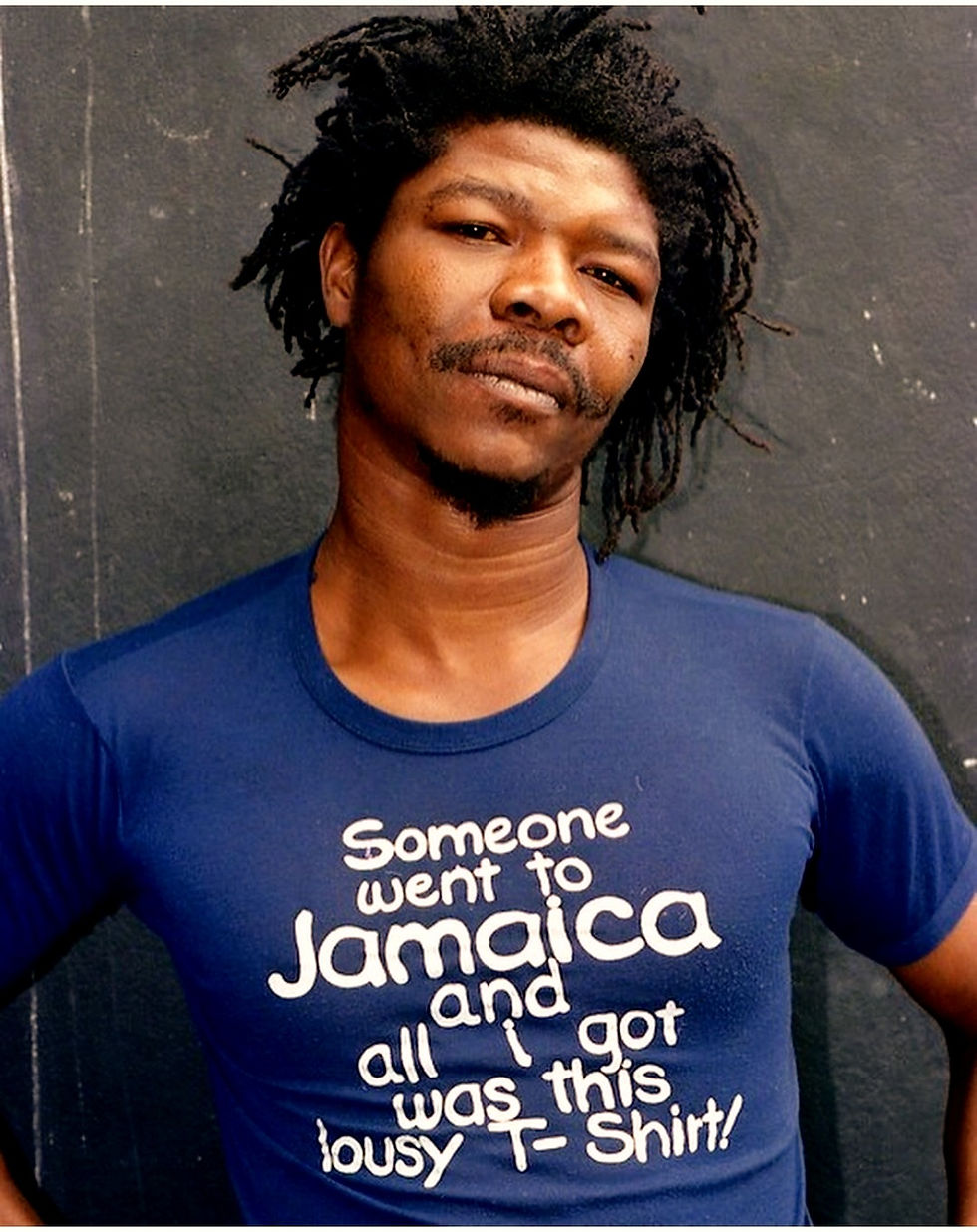Ain't No Such Thing as Superman
- Mus'ab Yasir Bey
- Jun 8, 2022
- 5 min read
Updated: Jul 19, 2022

In a society that has rendered black males as ontologically evil pretexting the underclass strata that black males have been perpetually tract into, punitive treatment experienced beginning as boys, inveterate stigmatizations, and the carceral fate that concomitantly looms; it's apparent that as an out-group, black males are earmarked (politically and socially) as persona non grata and ripe for exploitation. A craze that ramifies lucrative financial opportunities as well as class ascendancy for other groups, including our black female counterparts.
But what led to the rise of black women, and what nixed our once unified struggle?

The ascendancy in which the gilding takes place is through, but not limited to, federal subsidies like the guaranteed income for black women in States such as Georgia "to tackle the wealth gap,” philanthropic support by investment bankers like Goldman Sachs under the guise of "supporting advancement of racial equity and economic opportunity” by investing in black women, and the asymmetrical distribution of college grants. All display a tacit way of partitioning black peoples as a collective group. Instead, saying that black people are only comprised of black women or we are only willing to acknowledge and help black women, deemed the deserving gender of the race.
The synchronicity of such a cornucopia of dole outs to only black women in a harmonic societal effort to ignore, dismiss and erase the black male are glaring. Redolent even of Dr. Kings’ speech in which he spoke to his congregation with such sultry elocution about how America was "willing to undergird it's white peasants with an economic floor" through the distribution of various resources such as land grant colleges, county agents to further white peasants from Europe expertise in farming, and offer low interest rates to mechanize their farms, etc. The metamessage here is to bifurcate and create a new buffer class. I'm reminded of the Plinko machine on the game show 'The Price is Right'. You place a chip in, you know that it's going down, but you don't know where it's gonna land.

The anti-black male misandry that America bathes in is hardly anything new or sui generis. The Caribbean educator and Professor of Teacher Education who studied the marginalization of males, Errol Miller, wrote a research paper in 1988 called 'The Rise of Matriarchy in the Caribbean.' In his research he details how the white supremacist power structure in Jamaica and other Caribbean countries through decades of social tinkering created this matriarchal divide between the black men and women of those regions. This was executed by prioritizing black women’s needs with social welfare, providing disproportionate educational opportunities, jobs, etc. The smoldering, rancorous disdain for black males that chiseled the matrifocal society in Jamaica and the Caribbean mirrors that of the American mainland.

"There's evidence to show that all the avenues of upward social mobility available through education opened to the subordinate groups over the last 100 years have been shifted in favor of the female of the subordinate groups. And that these educational advantages have been converted by women to occupational and income advantages.” - Errol Miller
Indeed coruscating how select portions of this paper from 1988 seamlessly melds with the works of American psychologists and academics James Sidanius and Felicia Pratto's 'Social Dominance: An Intergroup Theory of Social Hierarchy and Oppression' written in 1999. This seminal work argues the adverse effects on the subaltern males when a society, utilizing legislative acts providing carve-outs, prioritizes female subaltern groups through policies along with social goods and subsidies once referred to stigmatically as welfare. Political maneuvers like this become sine qua non in maintaining hierarchical rulership. It encourages fissiparous tendencies when making unified justice claims within subordinate classes of people.
In 1965 Daniel Patrick Moynihan, then the assistant secretary of labor for the L.B.J. administration submitted a report called 'The Negro Family: The Case for National Action' which accentuated the perils of such matrifocal distribution of policies. The section of the report referred to as 'Moynihan Scissors' is a statistical analysis gleaned from years of labor data that suggests that (among other things) this asymmetrical distribution of job opportunities and welfare allocation for black women increased the divorced rate in the black community. When Moynihan suggested the redistribution of jobs from black women to black men, a motley of feminist groups (including blacks) took umbrage to the notion and immediately remonstrated with vituperative writings and strident pushback.
I wonder why?
In the mid 1990's University Professor and sociologist William Julius Wilson; who's work has received countless plaudits in the area of urban sociology, race, class, and the cumulative adversity of blacks in America; had the ear of then President Bill Clinton. After a few correspondence with Clinton and his administration he suggested that helping black men as a strategy to quell poverty issues of black communities could yield efficacious results for the black family nationwide. This attempt at stemming the tide of squalid conditions of the black community was met with opprobrium from feminist groups across the board.
Again, I wonder why?

One of the main critics was the 1970's black feminist and a signer of the Black Women's Manifesto, U.S. Congresswoman Eleanor Holmes Norton, of the black feminist movement. She, along with a throng of others like self-proclaimed lesbian and socialist feminist Barbara Smith, noted critic and charter member of Combahee River Collective, protested these suggestions vehemently. Their position was that it left black women out as if it were a competition for resources and not a labor campaign to assuage the poor black community at large. The programming that produces this anti-black male misandric reflex for over 150 years of social engineering by white supremacist and racist feminist is confounding. If you listen closely you can still hear the clear, thin voice of the rabidly racist Charlotte Perkins Gilman’s 1890s anti-black males screed at Suffrage conventions reverberating like the d-string on a violin.

There’s no coincidence that regardless of the menagerie of feminist sects established from 1st to 3rd wave; whether it's socialist, liberal, lesbian, black, post-structural, so on ad nauseam; they all seem to hum the same deleterious tune in regards to family structures: to place a kibosh to the intergenerational structure of the man, woman, and child. Pernicious indeed.
But what made this complicity of a coterie of black women so delicious that they would make jettison of a once unified struggle for black liberation? Especially for a community that has experienced a litany of trauma by being torn asunder for centuries by the same white supremacist offshoots, such as white feminist?
I surmise proximity to power in this offer and acceptance of buffer class status.
Black men are up against so many villains, and such has been a sisyphean task to overcome political malfeasance, class collaboration, and a battle against numerous groups that the odds seems insurmountable. Black men slog away at these obstacles with this John Henryism effort to no avail. A feat even for Superman, but...
"ain't no such thing as Superman!"





Comments